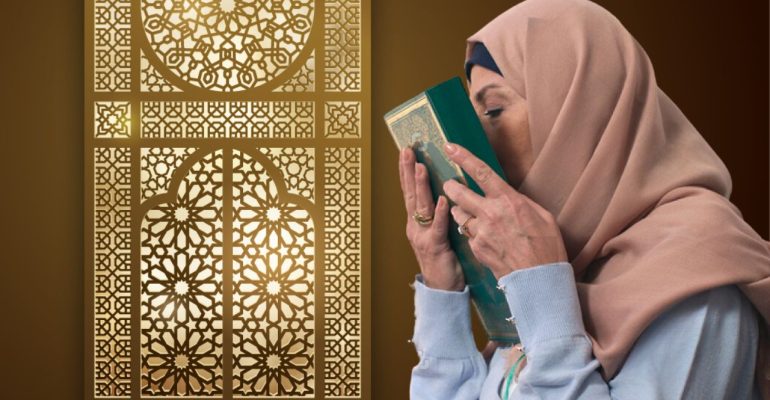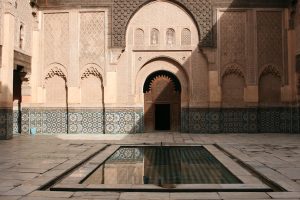Quranic Stories for American Youth: Nurturing Faith and Character
March 1, 2024 2025-08-13 11:17Quranic Stories for American Youth: Nurturing Faith and Character
Quranic Stories for American Youth: Nurturing Faith and Character
The Quran, revered by over a billion Muslims worldwide, is not merely a religious text; it is a treasure trove of timeless wisdom, guidance, and captivating narratives. Among its many facets, the Quran contains stories that resonate across cultures, ages, and backgrounds. For American Muslim youth, these stories serve as powerful tools for moral development, character building, and spiritual growth. In this article, we delve into the fascinating world of Quranic stories, exploring their significance, lessons, and impact on the hearts of young believers.
1. The Power of Storytelling in the Quran
Storytelling has an innate ability to captivate hearts and minds. The Quran recognizes this power and weaves intricate narratives that convey profound truths. These stories are not mere folklore; they are divinely inspired parables that illuminate the human experience. From the trials of Prophet Ibrahim (Abraham) to the wisdom of Prophet Yusuf (Joseph), each tale carries layers of meaning waiting to be unraveled.
2. Famous Quranic Stories
a. The Story of Prophet Yusuf (Joseph)
The saga of Prophet Yusuf is a masterpiece of storytelling. It encompasses themes of jealousy, betrayal, resilience, and forgiveness. Yusuf’s unwavering faith in the face of adversity, his patience during imprisonment, and his eventual rise to power exemplify the Quranic ideal of steadfastness. American youth can draw inspiration from Yusuf’s journey, learning that trials are stepping stones toward a greater purpose.
b. The Story of Prophet Musa (Moses)
The tale of Prophet Musa is interwoven with miracles, courage, and leadership. From the burning bush to the parting of the Red Sea, Musa’s life is a testament to divine intervention. His unwavering commitment to justice and liberation resonates with young hearts seeking guidance in a complex world. Musa’s story teaches perseverance, humility, and the importance of standing up for what is right.
c. The Story of Prophet Maryam (Mary)
Maryam, the mother of Prophet Isa (Jesus), embodies purity, devotion, and unwavering faith. Her miraculous conception and the birth of Isa hold profound lessons. Maryam’s resilience as a single mother facing societal scrutiny and her unwavering trust in Allah inspire young Muslims navigating their own challenges. Her story emphasizes the dignity of women and the strength found in submission to God’s will.
3. Islam’s View on Youth
Islam places immense value on youth. The Prophet Muhammad (peace be upon him) recognized the potential within young hearts and encouraged their active participation in society. American Muslim youth are not merely the future; they are the present. Their energy, creativity, and passion can drive positive change. Islam encourages them to seek knowledge, uphold justice, and contribute meaningfully to their communities.
4. The Islamic Short Story for Kids with Morals
1. Faith Beyond Borders
American Muslim youth often grapple with questions of identity. They straddle cultures, languages, and traditions. The Quranic stories, however, transcend these boundaries. Whether you’re in New York or Los Angeles, the trials faced by Prophet Ibrahim (Abraham) resonate. His unwavering faith in the face of adversity—be it the fiery furnace or the command to sacrifice his son—teaches us that faith knows no geographical limits. It’s a universal language that speaks to the human soul.
2. Peer Pressure and the Red Sea
Imagine standing at the shore of the Red Sea, the water towering like walls on either side. Prophet Musa (Moses) faced this daunting scene as he led the Children of Israel away from oppression. American youth, too, encounter their metaphorical Red Seas—peer pressure, societal expectations, and the fear of being different. Musa’s unwavering trust in Allah, his staff striking the water, and the miraculous parting of the sea remind us that courage and faith can part any obstacle. The Red Sea becomes a symbol of resilience, urging us to stand firm even when the waves threaten to engulf us.
3. Doubts and the Cave of Hira
In the quiet solitude of the Cave of Hira, Prophet Muhammad (peace be upon him) sought answers. He grappled with doubts, yearning for divine guidance. American Muslim youth, too, wrestle with questions—about purpose, existence, and the complexities of life. The Quranic revelation to Muhammad in that cave echoes through time, reassuring us that seeking knowledge, reflection, and moments of solitude are essential. Doubt is not the enemy; it’s a catalyst for growth.
4. Balancing Faith and Modernity
The Quranic heroes were not relics of the past; they were trailblazers. They navigated their societies with faith as their compass. American Muslim youth face a similar challenge—to balance faith with the demands of modernity. The story of Prophet Yusuf (Joseph) exemplifies this delicate equilibrium. Yusuf’s integrity in the face of temptation, his patience during imprisonment, and his eventual rise to power teach us that faith isn’t an obstacle to success; it’s the foundation upon which true success is built.
5. The Digital Age and the Spider’s Web
In an age of information overload, the spider’s delicate web in Surah Al-Ankabut (The Spider) becomes a powerful metaphor. The spider labors tirelessly, weaving its intricate home. American youth, too, weave their digital webs—Instagram posts, tweets, and virtual connections. But like the spider, they must remember that even small, consistent efforts matter. The web may seem fragile, but it sustains life. Similarly, our daily acts of kindness, sincerity, and devotion matter in the grand tapestry of faith.
6. The Call to Justice
The Quranic stories resound with calls for justice. Prophet Hud’s (peace be upon him) unwavering stand against oppression, the plea of the oppressed in Surah Al-Baqarah (The Cow), and the emphasis on fairness—all echo through the ages. American Muslim youth, as inheritors of this legacy, carry the torch of justice. Whether advocating for social equality, environmental stewardship, or human rights, they draw inspiration from the Quranic injunctions. Justice isn’t an abstract concept; it’s a lived reality.
Prophet Muhammad’s Timeless Wisdom for Youth
5. Prophet Muhammad’s Advice to Youth
The legacy of Prophet Muhammad (peace be upon him) extends far beyond his lifetime. His words, recorded in the Hadith, continue to guide and inspire young believers across generations. Let us delve into the profound advice he offered to the youth—a beacon that illuminates their path even in the complexities of modern life.
a. Seek Knowledge: The Light of Guidance
Prophet Muhammad emphasized the pursuit of knowledge as a sacred duty. To American Muslim youth, this call resonates. Seek knowledge relentlessly—not just religious knowledge, but also scientific, artistic, and ethical wisdom. Illuminate your minds with curiosity, for knowledge is the light that dispels ignorance and prejudice. Whether in classrooms, libraries, or online platforms, embrace learning as a lifelong journey.
b. Respect for Elders: Bridges Across Time
In a fast-paced world, where trends change overnight, the Prophet’s counsel on respecting elders remains timeless. Elders carry the weight of experience, and their stories are bridges connecting us to the past. Listen attentively to their narratives—the struggles they faced, the victories they celebrated, and the lessons they learned. Their wrinkles hold wisdom, and their presence enriches our lives. Treat them with kindness, for in honoring them, we honor our shared humanity.
c. Character: The True Measure
Prophet Muhammad emphasized character as the true measure of a person. American Muslim youth, as ambassadors of Islam, bear this responsibility. Integrity, honesty, and compassion define character. Uphold these virtues in your interactions—with family, friends, and strangers alike. Be known for your trustworthiness, your empathy, and your unwavering commitment to justice. Character is not a mask; it’s the essence of who you are.
d. Faith in Action: The Living Creed
Faith without deeds is like a tree without roots. Prophet Muhammad stressed the inseparable link between belief and action. American Muslim youth, let your faith manifest in tangible ways. Pray not just with your lips, but with your hearts. Extend a helping hand to those in need. Stand up against injustice. Volunteer in your community. Let your faith be a force for good—a living creed that transforms lives and societies.
6. Connecting Quranic Stories to Modern Challenges
a. Identity: The Journey Within
American Muslim youth grapple with identity—balancing cultural heritage and American citizenship. The Quranic stories provide solace. Consider Prophet Yusuf (Joseph), torn between his family and a foreign land. His resilience, forgiveness, and eventual reunion with his father teach us that identity is a journey. Embrace both your roots and your present. You are a tapestry woven from diverse threads—each thread contributing to your unique story.
b. Peer Pressure: The Red Sea Moments
Facing peer pressure feels like standing at the shore of the Red Sea. Prophet Musa (Moses) confronted a similar challenge when leading his people to freedom. The sea seemed insurmountable, yet faith parted its waters. American Muslim youth, when waves of conformity threaten to engulf you, remember Musa’s unwavering trust in Allah. Stand firm, even when the currents pull you. Your faith can part any sea.
c. Doubts: The Cave of Reflection
In the quiet of the Cave of Hira, Prophet Muhammad sought answers. American Muslim youth, too, grapple with doubts—about faith, purpose, and existence. Embrace moments of reflection. Seek knowledge, question, and seek again. Doubt is not weakness; it’s a catalyst for growth. Just as the cave held revelations for the Prophet, your doubts can lead to deeper understanding.
d. Justice: The Call to Act
The Quranic stories echo with calls for justice. Prophet Hud’s (peace be upon him) stand against oppression, the plea of the oppressed in Surah Al-Baqarah (The Cow)—these resonate today. American Muslim youth, you inherit this legacy. Advocate for justice—whether in racial equality, environmental stewardship, or human rights. Justice isn’t an abstract concept; it’s a lived reality. Let your actions be a testament to justice.
Conclusion: Guiding Stars
As American Muslim youth navigate dual identities—American and Muslim—the Quranic stories and the Prophet’s wisdom serve as guiding stars. They illuminate the path, dispelling darkness. Let these narratives shape your character, ignite compassion, and inspire resilience. For within those verses lie the keys to a purposeful, meaningful life—a life that bridges ancient wisdom and contemporary struggles.









